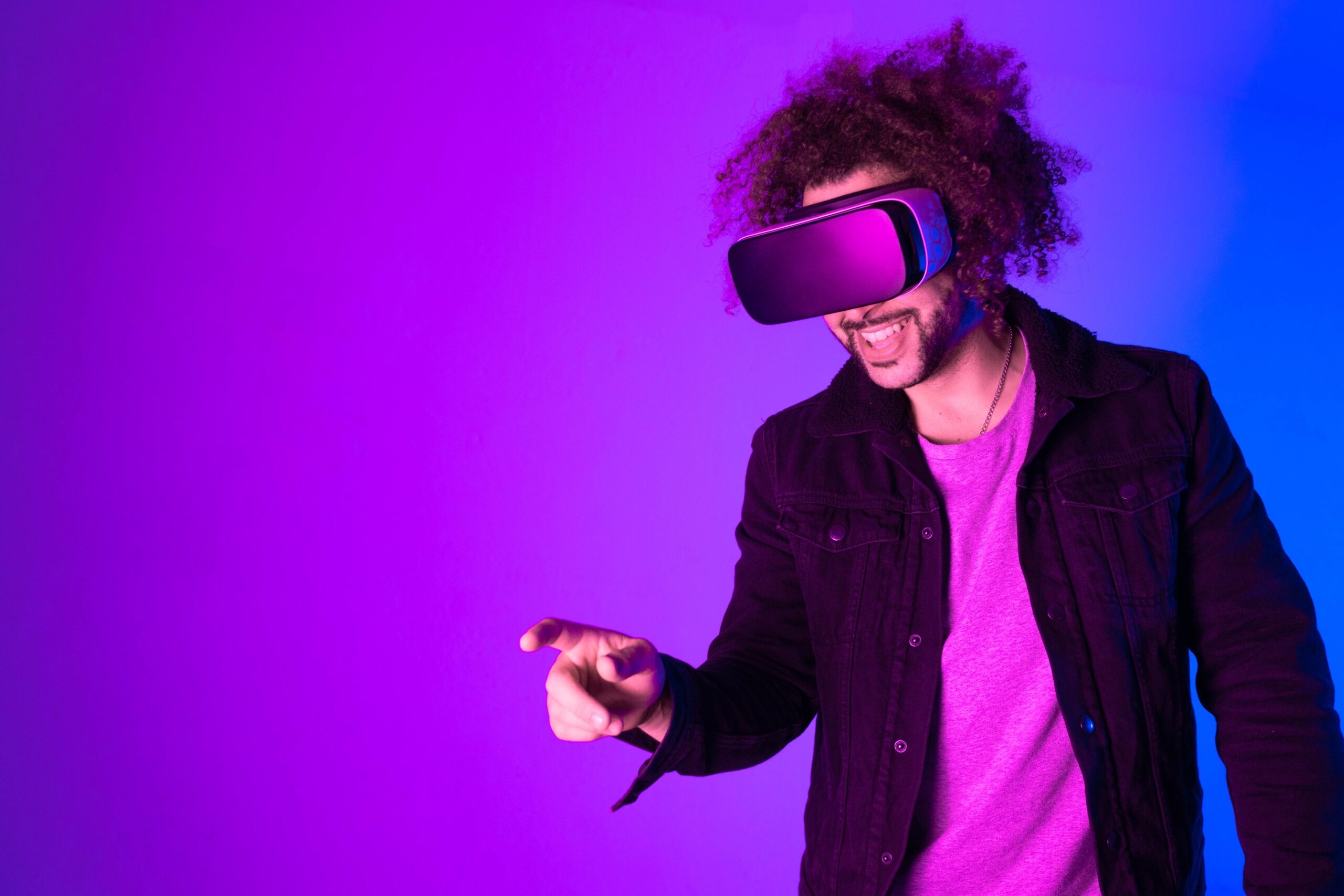That’s where limited edition products are being launched, movie trailers are being released, concerts are being held, and assets are being exchanged. Metaverse isn’t something in the future. It’s already here and millions are part of it. It’s digital marketing’s next frontier and brands across categories are venturing into the metaverse to acquire and engage with customers.
What is metaverse?
As the word suggests, the metaverse is “beyond” the “universe.” It’s an immerse, virtual world filled with virtual representations or avatars of real people. Metaverse exists in real-time where avatars actively interact with each other and the universe around them. Users access this world through virtual reality (VR) and augmented reality (AR) technologies.
The easiest way to understand the metaverse is to see it as an evolved video game. Players can interact and make decisions within this world. They can own, create, buy, and sell assets. For their efforts, these avatars are rewarded and recognised inside this environment. Two of the biggest metaverses are Roblox and Fortnight.
Metaverse and digital marketing
The biggest reason for marketers to enter the metaverse is that digital-native consumers are already engaging in that world. From Gen X to millennials to Gen Z, multiple population segments are interacting in this environment. This gives brands opportunities to target these audiences and deliver augmented brand experiences.
Some of the biggest brands in the world have already established their presence in the metaverse in highly creative and engaging ways. Vans has a virtual skatepark that allows players to earn points by trying new tricks in Roblox. These points can be redeemed in the virtual store to get their avatars customised. More than 48 million players have already visited this virtual park.
Gucci launched The Gucci Virtual 25 through VRChat and Roblox. These digital sneakers are sold for $12.99. Along the lines of its Gucci Garden Archetypes that happened in Florence, Italy, the brand also launched its Gucci Garden in May 2021 on Roblox. This enabled visitors to buy digital products from the brand.
It’s important to note that metaverse is moving beyond the realms of gaming. Through VR glasses, users can now attend conventions, product launches, trade shows, and concerts. This significantly expands the number of visitors to the metaverse, opening up opportunities for digital marketers.
How brands can enter the metaverse
Focus on building worlds
The metaverse isn’t for a one-off event or contest. Digital marketers should have a long-term view to develop brand worlds in the metaverse. This means reorienting marketing to make it experiential with the ultimate aim of building communities.
Understand consumer insights
This is a new world with new consumer behaviours. Digital marketers shouldn’t superimpose the learnings from the real world. Brands need to understand the gamut of consumer interactions in the metaverse, from virtual currencies and economies to the rules of community interactions.
Make messaging coherent
The marketing messages in the real and virtual worlds should be cohesive. Marketers should ensure that brand characteristics are seamlessly carried over to the metaverse. If a brand is authoritative and traditional in the real world, being adventurous and radical in the virtual world will create dissonance for audiences.
Use AR technology
To make the most of the metaverse, it’s a good idea to familiarise yourself with AR technology. Once you start using it in existing spaces, whether they are retail locations or trade booths, you will see how AR can be explored for digital-first experiences in the virtual world.
Extend your current activities
You don’t have to start from scratch when you begin your digital marketing campaign in the metaverse. Brands can look at their real-world activities and think about extending them into virtual worlds. For example, if you associate with music concerts in the real world, you can continue those associations in the metaverse.
In short
Technological evolutions can at first seem confusing but if managed well, they can be promising. From paid search ads to Instagram Reels, marketers have not only adapted to new platforms but made them work for their brands. Metaverse offers not just an opportunity but a whole environment for brands to thrive and connect with their audiences.



